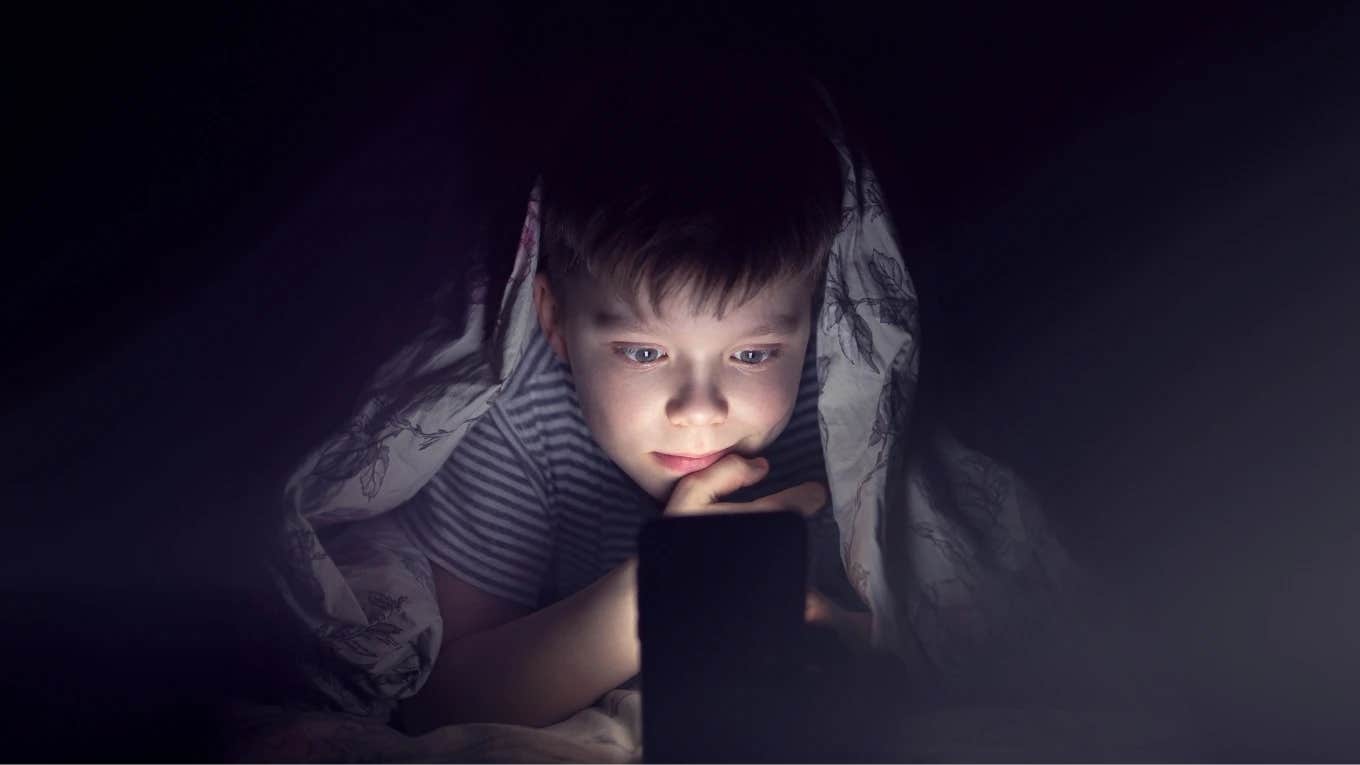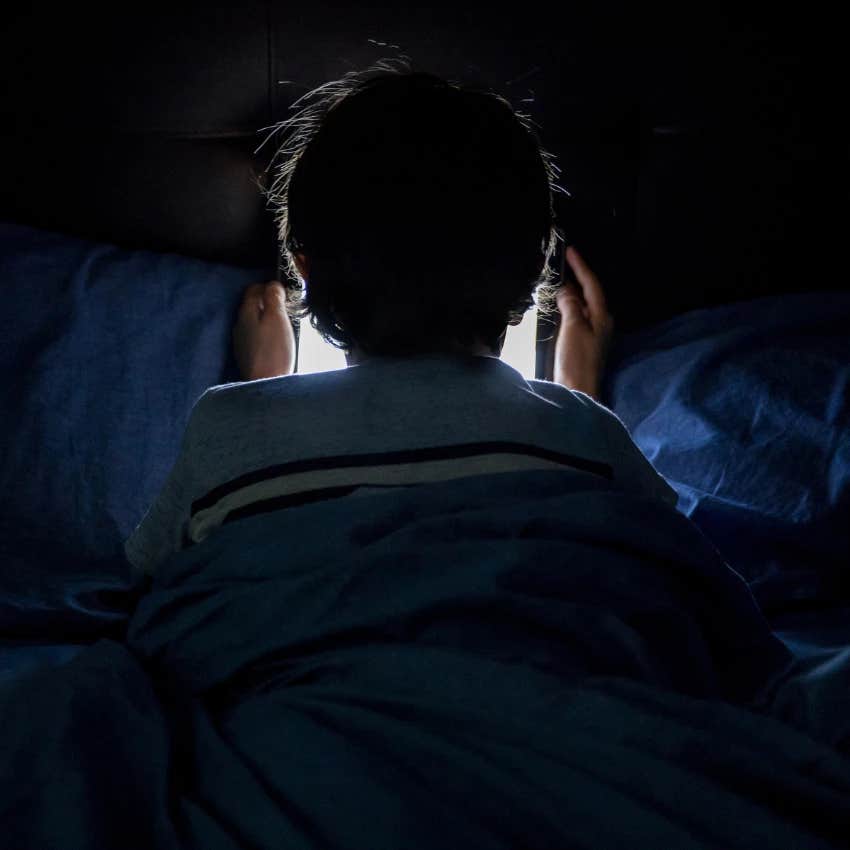Mom Says Her 6-Year-Old Is 'Sneaking Around' The House At Night To Use Electronics
Screen addiction in kids is a very real problem, and this is a whole new level.
 Bystrov / Shutterstock
Bystrov / Shutterstock Perhaps no two words strike more fear into the hearts of parents today than "screen time." For one mom on Reddit, her son's love for devices has gone to a level she never saw coming.
One mom's 6-year-old sneaks around the house at night to use electronics and get more screen time.
Today's kids are in somewhat uncharted territory as the first generation to have never known a non-digital world. As a result, screen time is one of the most contentious parenting issues around nowadays.
A 2020 Pew Research study found that 71% of parents are worried about what all this screen time might be doing to kids, and 66% said they believe screen time and social media are making parenting harder than it was 20 years ago, in the comparatively innocent days of dial-up.
That all makes this mom's Reddit story seem less like an over-the-top example and more like a sign of the times.
The mom doesn't allow her son screen time during the week, but he's nonetheless obsessed.
The mom wrote in her post that she and her husband are at their wit's end with their six-year-old who is going to extreme lengths to get hold of their devices.
"My [son] is sneaking stuff around the house when we are sleeping and I’m just about at my tipping point," she shared. "The kid is not allowed any electronics during the week." But that hasn’t stopped him from sneakily using them before everyone else is awake.
 Photo: MPIX / Shutterstock
Photo: MPIX / Shutterstock
Admittedly, this is kind of hilarious — the mental image of a child sneaking around trying to watch Cocomelon at 4 a.m. is inherently funny. But that doesn't make it any less alarming for the kid's parents.
He's stolen phones, laptops, tablets, gaming devices — he even spent $100 of his teen brother's money on middle-of-the-night games that overdrew his bank account.
"This can’t possibly be normal behavior," she wrote. "I’m not sure what to do here, and feel that I’ve failed somewhere along the line whether it was the YouTube, or something else."
Screen addiction is a very real issue for kids, and research shows it is a far bigger problem than screen time itself.
A 2017 University of Michigan study found that while screen time, in general, can be a huge problem for kids, the biggest issue "is whether screen use causes problems in other areas of life or has become an all-consuming activity" — that is, screen addiction.
Neurological research has conclusively found that screens, social media, TikTok, and even apps like YouTube which seem not all that different from TV to us adults, are addictive because they impact our brain's dopamine and serotonin reward systems in the same ways substances do.
For a better analogy, think of a slot machine, the origin of myriad gambling addictions. Social media feeds are quite literally modeled after slot machines.
The constant scroll and even the "pull to refresh" features of social media apps are meant to directly emulate the same addictive experience as pulling a slot machine's crank and watching the reels spin — this includes YouTube's autoplay function.
For a young brain, both the appeal and the crash when screens are taken away are even stronger than for us adults. As Dr. Dimitri Christakis of the Seattle Children’s Research Institute put it to The New York Times, "The withdrawal of it is experienced as painful. You experience transient withdrawal like you’re coming down from a high."
But unlike us adults, kids don't know how to manage this crash, hence why 93% of parents asked in a University of Washington study said their children have an absolute meltdown whenever they take screens away.
What can parents do about screen addiction in their kids?
Well, for starters, keep them off screens in the first place. The American Academy of Pediatrics recommends zero — yes, zero — screen time or exposure to digital media before the age of 2, and that kids ages 2 to 5 have no more than an hour per day.
But if, like this parent, the horse is already out of the barn, doctors suggest scheduling screen time with clear parameters. The University of Washington study showed this helped cut down on kids' outsized emotional reactions to devices being taken away.
It also found that rewards for when screen time is over — like a trip to the park or a fun snack — also help kids adjust. And, interestingly, a common practice among many parents — warning kids when screen time is about to end — did not help. But involving them in the decision-making process about how long screen time will last and what will happen afterward did.
As for the sneaking around at night, several parents on Reddit urged the mom to use a technique that worked for them: so-called "device jail" in which all electronics are locked up at night so they're inaccessible.
A drastic measure, perhaps, but with screen addiction in kids having been shown to cause everything from obesity to cognitive delays, it's worth it to protect kids from the effects of devices and a media environment our brains were never designed to handle in the first place.
John Sundholm is a news and entertainment writer who covers pop culture, social justice and human interest topics.

